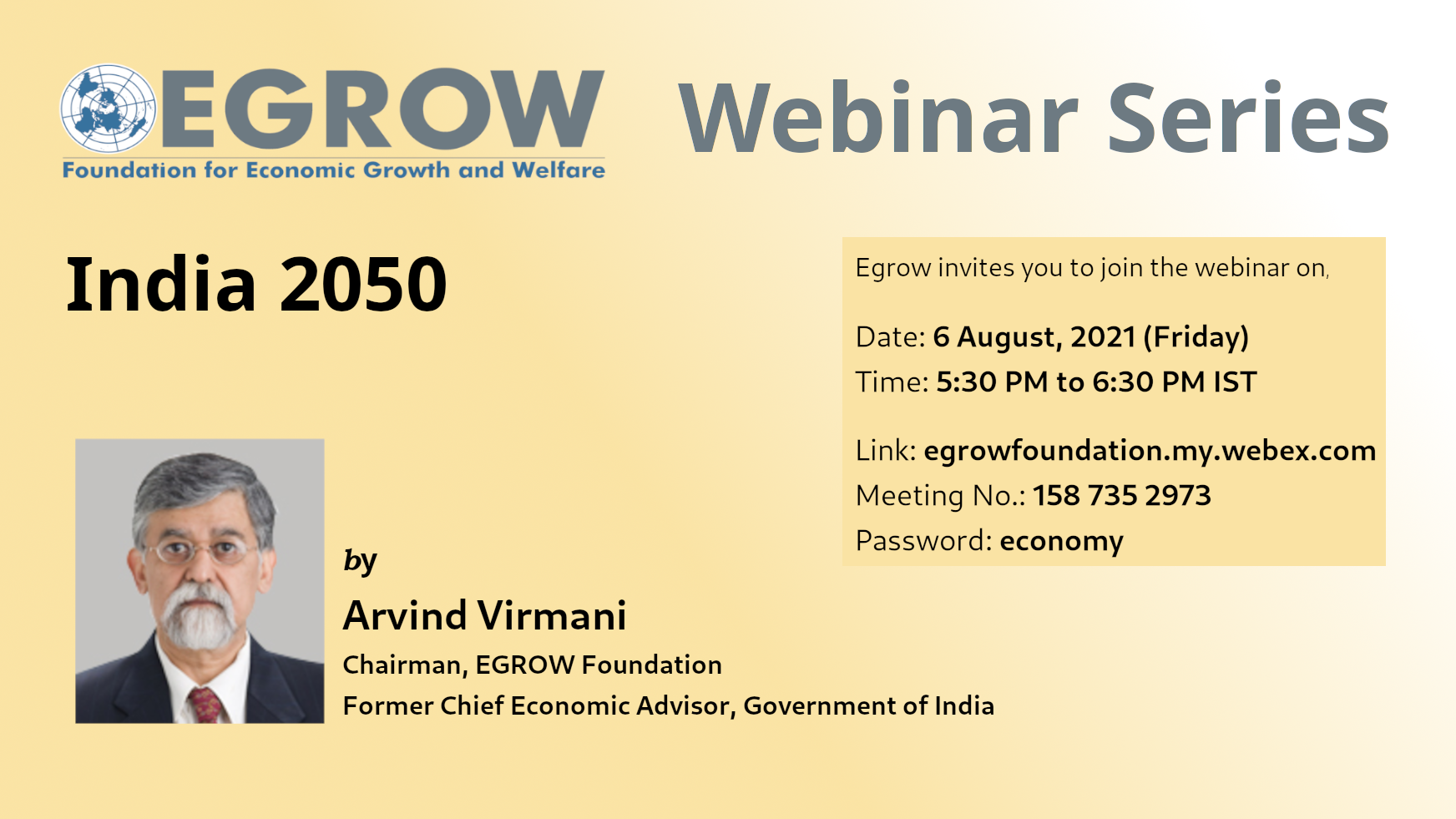India 2050

Webinar Link
Meeting No: 158 735 2973
Password: economy
Abstract
This paper presents a Vision of a developed India in 2050. Two objectives drive this vision. One is fast catch-up growth that closes the gap with countries which were at the same stage of development as India in the 1960s & 1970s but have moved ahead since then. An understanding and utilization of global & domestic trends is critical to fast growth, which can be used by Indian government and its people to leapfrog to a better life. The second is equality of opportunity for every Indian citizen based on personal motivation & inherent capabilities. Equal access to quality education, skills, public goods, social and governance services is critical to both these objectives. Provision of social services to 1.6 billion Indians, at the quality available to 1.3 billion citizens of the Developed countries, is only possible in 30 years through comprehensive use of digital systems like e-governance, e-learning, tele-medicine, and artificial intelligence. We envision a Hybrid architecture which marries India’s vast human resources to a pervasive digital infrastructure to accelerate structural transformation and inclusive growth. Government will ensure the provision of hard & soft infrastructure to every habitation in India, develop a policy structure that creates competitive markets in which private entrepreneurs can innovate and thrive, and a welfare system that protects the weak & vulnerable while giving ample scope for civil society to provide a multiplicity of non-marketable services. The key policy & institutional reforms required are also discussed.
About the speaker
Arvind Virmani is Chairman of the Foundation for Economic Growth and Welfare (EGROW) and President of the Forum For Strategic Initiatives (FSI, Delhi). He was earlier Executive Director, IMF, Chief Economic Advisor, Ministry of Finance and Principal Advisor, Planning Commission. He was closely associated with the Tax, tariff, foreign exchange, financial sector policy reforms of the 1990s.
He was Director & Chief executive of ICRIER (Indian Council for Research on International Economic Relations) and has published 35 journal articles, 20 book chapters and over 50 other working papers, in Macroeconomics, Growth, Tax & tariff Reform, Foreign exchange, International relations, and National Security Strategy.